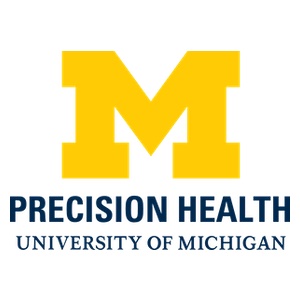
Arvind Rao
Associate Professor
Computational Medicine and Bioinformatics
Medicine
RV College of Engineering, Bangalore University, Bangalore BE 12/2001 Electronics and Communications Engineering
University of Texas at Austin, Austin, TX MS 08/2003 Communications, Networks and Systems
University of Michigan-Ann Arbor, Ann Arbor, MI MA 05/2007 Statistics
University of Michigan-Ann Arbor, Ann Arbor, MI PhD 12/2008 IIDP (Electrical Engineering and Bioinformatics)
Lane Postdoctoral Fellowship, Carnegie Mellon University, 8/2009-8/2011
My graduate work in bioinformatics aimed to develop a framework that identifies tissue‐specific enhancers by integrating multi‐modal genomic (gene expression, methylation, and interaction) data. As a postdoctoral fellow in Carnegie Mellon University, I obtained training in data mining methods for image analysis. Previously, at the MD Anderson Cancer Center, I developed methods to analyze the relationship between image‐derived phenotypic attributes and genotypic attributes for cancer patients, focusing most of the work on datasets from the Cancer Genome Atlas (TCGA). Such image data is obtained from multiple modalities including, H&E whole slide data, immunohistochemistry, high-content microscopy, and radiology. At the University of Michigan, the primary focus of our group is to develop algorithms to quantify tumor phenotypes (from radiology, histopathology, and microscopy data) and to relate those phenotypic aspects with genetic alterations like expression changes, mutation, or copy number alterations. Further, we also develop methodologies (using statistical methods and machine learning) to integrate these diverse modalities (imaging, genomics, etc.) to develop decision algorithms for prognosis and treatment selection. I am serving as Principal Investigator on a Research Scholar Grant from the American Cancer Society, as well as (contact PI) for an NIH R37 grant looking to develop cancer bioinformatics infrastructure to integrate imaging-derived measurements with genomics for clinical prognostication. Looking forward, we are interested to develop analysis methodologies (based on spatial statistics, image analysis and machine learning) as well as tools for “spatial cancer systems biology” by leveraging spatial transcriptomics, spatial proteomics, and multiplex imaging strategies of the tumor microenvironment to obtain a deeper characterization of regulatory networks underlying oncogenesis.
As part of community science initiatives, I have been an active participant in Analysis Working Groups (AWGs) for the Cancer Genome Atlas (TCGA) — I have been privileged to contribute directly or indirectly to approximately 30 TCGA manuscripts for multiple disease sites and the Pan-Cancer efforts (through bioinformatics analyses and creating bioinformatics infrastructure for work in batch effects, multi-omic data integration, immune infiltration, and regulatory program analyses). This community-wide effort, we believe, has strongly improved our understanding of the cancer genome and created many new exciting tools for cancer bioinformatics research. More formally, I am strongly engaged in the educational mission, having served on multiple graduate student committees, as well as teaching lectures on “cancer bioinformatics.”
Projects:
Combining imaging and genomics for disease prognostication and risk measurement
University Affiliation(s)
IHPI | MICDE | MIDAS
Research Area(s)
Biomarkers | Computational Biology | Data science / Analytics / AI
Grants
- Mentor of: Computational Digital Pathology for Chronic Kidney Disease
- Co-investigator of: Combinatorial ETS1-dependent control of oncogenic NOTCH1 enhancers in T-cell leukemia
- Co-investigator of: Evaluation of prostate biopsy spatial multiomics to correctly identify grade group (GG) GG2 prostate cancer and diminish upgrading of GG1.
